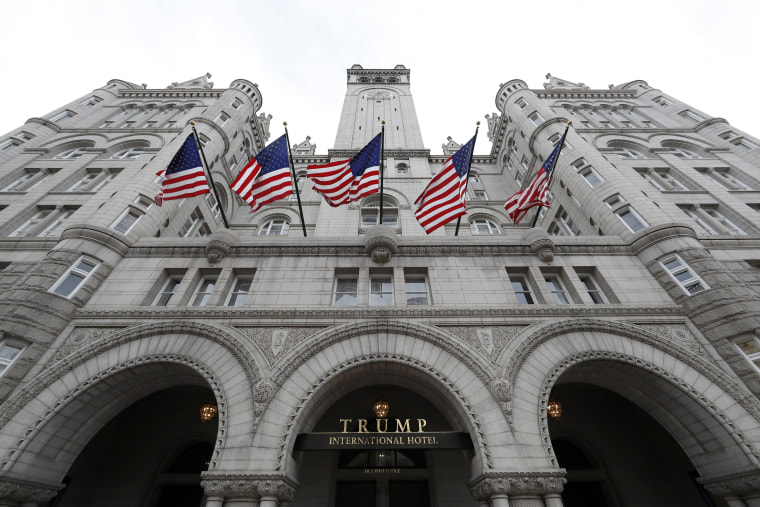Before taking office, Donald Trump and his team came up with a purported solution to one of the new president's legal problems. The Constitution doesn't allow a president to receive money from foreign governments, but Trump's hotels -- which he continues to own and profit from -- welcomed foreign officials as guests.
So, we were told, to avoid running afoul of the law, Trump vowed that his business would monitor receipts and make sure the president didn't profit from foreign governments. Except two weeks ago, NBC News reported that the Trump Organization decided not to keep that promise, determining that it'd be too difficult.
I'm not unsympathetic to the practical realities -- keeping the promise would create a real logistical challenge -- but there is no "this is too tricky and impractical" exception to the Constitution. Trump could do what he's supposed to do -- divest from his private-sector investments -- and avoid the problem altogether.
The president, at least for now, refuses to divest, making reports like this one in the Wall Street Journal all the more problematic for Trump World.
President Donald Trump's Washington hotel received roughly $270,000 in payments linked to Saudi Arabia as part of a lobbying campaign by the Gulf kingdom against a controversial piece of terrorism legislation last year.The payments -- for catering, lodging and parking -- were disclosed by the public relations firm MSLGroup last week in paperwork filed with the Justice Department documenting foreign lobbying work on behalf of Saudi Arabia and other clients.
Saudi Arabia's Washington lobbyists and consultants started spending the money in the fall, while lobbying against the Justice Against Sponsors of Terrorism Act (JASTA), which passed in the fall, before Trump became president.
The payments, however, extended from Nov. 2016 into Feb. 2017 -- which included the period after Trump's inauguration.
A Wall Street Journal reporter added this morning that the Trump Organization is now saying it'll transfer the money from Saudi Arabia to the U.S. Treasury in December. We don't know, however, whether that'll actually happen, whether it'll be properly disclosed, or how many other payments from abroad the president's business will forfeit.
Rep. Elijah Cummings (D-Md.), the ranking Democrat on the House Oversight Committee, told the WSJ, "This is a textbook example of a foreign government paying directly into the President's pocketbook while pursuing its own policy goals, Saudi Arabia is spending vast amounts of money at President Trump's hotel while at the same time pressing to limit the rights of U.S. citizens to sue the Saudi government."
Cummings' concerns have the benefit of being true.
